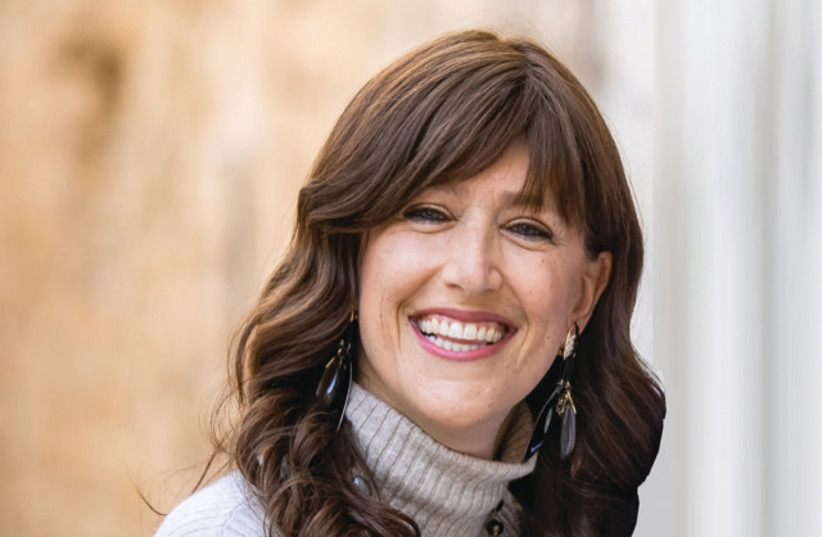In these early weeks of the new school year, families and community stakeholders are turning their attention to school choice, and are considering the ripple effects of those decisions across families and Jewish communities worldwide.
In many ways, choosing a school for your child appears to be a “vampire problem,” a term coined by Yale Professor L. A. Paul to describe “choices involving dramatically new, life-changing experiences [despite]… the brute fact that we can know very little about our subjective futures.”
A public, Jewish, or other kind of school will not only shape the future self of a child, but also that of others in their family. What makes vampire problems especially challenging is we can only learn what we need to know after having committed to a decision. And, as Søren Kierkegaard notes, while “life must be understood backward… it must be lived forward.”
Choices like sending a child to a Jewish day school are even more difficult to make given they involve massive financial sacrifice, concerns about the quality of general studies programs, and dealing with negative memories from one’s own Jewish educational experiences, as Alex Pomson and Jack Wertheimer have recently noted.
The salience of cultural identity is evident from a recent study of the Jewish communities of Australia, Canada, South Africa, UK, and the US. It found that religion continues to be important, but culture as a form of Jewish self-identification is appealing to much larger numbers. If you’re reading this, there’s a good chance you’re from one of the five largest English-speaking Jewish communities, and a Jewish identity that is distinctively cultural matters to you.

Jewish cultural identity is attractive for those who love Jewish culture. Jewish culture includes distinctively Jewish languages, literatures, laffas, and latkes; music, media, and creative musings. Jewish culture is about what we learn, how we share what we earn, our strivings to repair the world, and expressing our caring for Israel. Jewish culture can be deeply private or highly social.
Why is the choice of a Jewish day school education for the child of cultural Jews a vampire problem? Does learning about religion and ritual matter that much to cultural Jews?
In a recent study of young Australian Jews, I analyzed Jewish day school education, upbringing, and community involvement as cultural “wellsprings,” or environments where cultural identity is nourished. The results were powerful and some were sobering. More compelling than the positive impact of Jewish day schools on cultural identity was the domino effect of that education on habits and values that indirectly and more powerfully affect cultural identity.
In other words, the more years of Jewish day school education a young person receives, the more likely it is they will have more Jewish friends, be more involved in Jewish communal life, and be more strongly attached to Israel in adulthood. Jewish day schools are not just sites of Jewish content delivery; not just places where we make friends and learn about Jewish engagement options.
Jewish schools are where we learn Jewish values, including the importance of holding on to Jewish friends and maintaining connections to Jewish communities, wherever life takes us. Jewish day schools are a wellspring of Jewish culture.
Another fascinating finding is that upbringing matters in really different ways. Highly engaged cultural upbringing has a strengthening impact, while cultural upbringing characterized by minimal engagement has a weakening impact on a young person’s cultural identity. And these effects intensify as people receive more years of Jewish day school education.
For those parents who think they have no impact on their kids, consider this: Compared to those who had a cultural upbringing of minimal- or moderate-level engagement, those with highly engaged cultural upbringing have a more intense Jewish cultural identity, regardless of the number of years of Jewish day school education received.
When a child is not at home for most of their daylight hours during childhood and adolescence, how can parents shape the impact of their Jewish education? This may be anecdotal, but during my 25 years as a Jewish educator, I occasionally came across parents who had rather mixed feelings about their children’s Jewish education. I was occasionally told by (usually embarrassed and apologetic) students that their parents wouldn’t be meeting me at parent-teacher night because they had “only made time for the important subjects.”
Paying for tuition involves immense sacrifice, to be sure. However, parental attitude is a powerful arbiter of whether that education will have a positive or negative impact. How unjust it is that schools often bear the burden of communal expectations for the nurturing of Jewish cultural identity. Parents are a wellspring of Jewish culture and should appreciate their role as partners with schools in nurturing their children’s cultural identity.
Jewish friends, part of the third cultural wellspring, also have a powerful effect on cultural identity. However, in order for cultural Jews to value having Jewish friends and supporting communal flourishing, they need to have developed those values in other contexts. It appears, therefore, that the potentially nourishing experiences of some wellsprings are only possible for those who have already been exposed to others.
A popular choice
These days, in most English-speaking Jewish communities, Jewish day school education is overwhelmingly embraced by Orthodox families for its effects on religious identity. And that’s a shame. While religion and culture represent distinct forms of identity, religious and Jewish cultural identity formation are shaped by similar socializing forces. In sum, Jewish day school education is an important wellspring for Jewish cultural identity that should be valued beyond any contributions it may make to religious identity.
At the beginning of the new school year, choosing a Jewish day school isn’t a vampire problem. It’s a vital cultural resource to be eagerly embraced.
The writer is a research associate at the Australian Center for Jewish Civilisation at Monash University, Australia, and a research associate at the Cohen Center for Modern Jewish Studies at Brandeis University.
